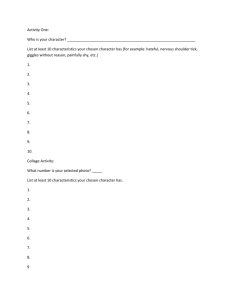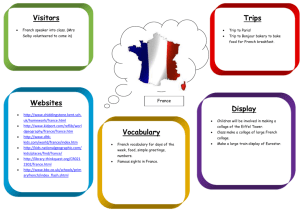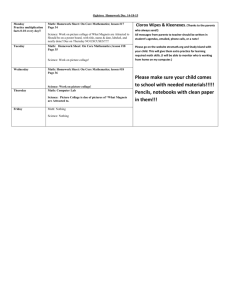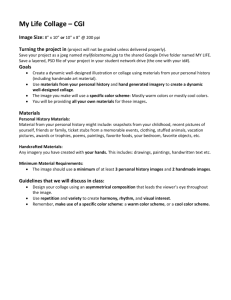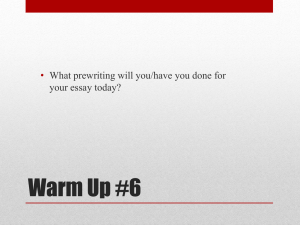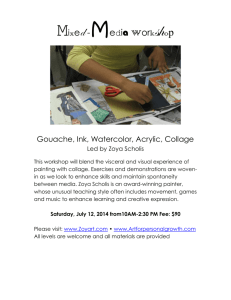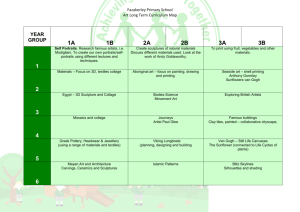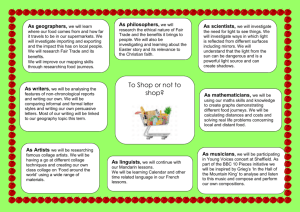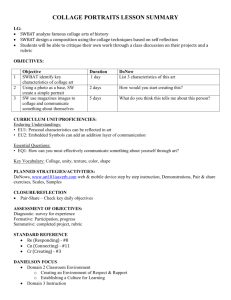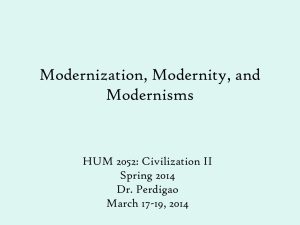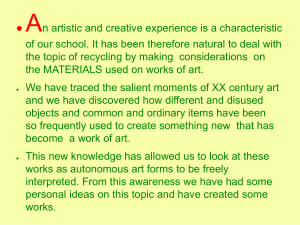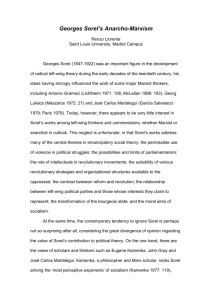Age of Anxiety project
advertisement
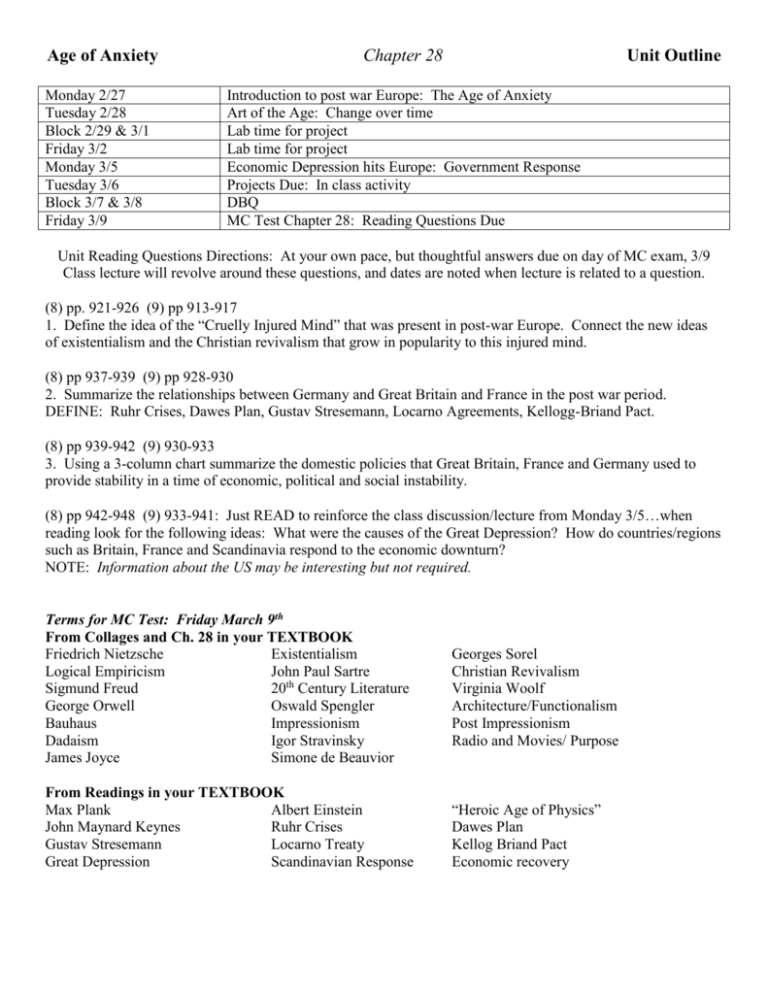
Age of Anxiety Monday 2/27 Tuesday 2/28 Block 2/29 & 3/1 Friday 3/2 Monday 3/5 Tuesday 3/6 Block 3/7 & 3/8 Friday 3/9 Chapter 28 Unit Outline Introduction to post war Europe: The Age of Anxiety Art of the Age: Change over time Lab time for project Lab time for project Economic Depression hits Europe: Government Response Projects Due: In class activity DBQ MC Test Chapter 28: Reading Questions Due Unit Reading Questions Directions: At your own pace, but thoughtful answers due on day of MC exam, 3/9 Class lecture will revolve around these questions, and dates are noted when lecture is related to a question. (8) pp. 921-926 (9) pp 913-917 1. Define the idea of the “Cruelly Injured Mind” that was present in post-war Europe. Connect the new ideas of existentialism and the Christian revivalism that grow in popularity to this injured mind. (8) pp 937-939 (9) pp 928-930 2. Summarize the relationships between Germany and Great Britain and France in the post war period. DEFINE: Ruhr Crises, Dawes Plan, Gustav Stresemann, Locarno Agreements, Kellogg-Briand Pact. (8) pp 939-942 (9) 930-933 3. Using a 3-column chart summarize the domestic policies that Great Britain, France and Germany used to provide stability in a time of economic, political and social instability. (8) pp 942-948 (9) 933-941: Just READ to reinforce the class discussion/lecture from Monday 3/5…when reading look for the following ideas: What were the causes of the Great Depression? How do countries/regions such as Britain, France and Scandinavia respond to the economic downturn? NOTE: Information about the US may be interesting but not required. Terms for MC Test: Friday March 9th From Collages and Ch. 28 in your TEXTBOOK Friedrich Nietzsche Existentialism Logical Empiricism John Paul Sartre Sigmund Freud 20th Century Literature George Orwell Oswald Spengler Bauhaus Impressionism Dadaism Igor Stravinsky James Joyce Simone de Beauvior From Readings in your TEXTBOOK Max Plank Albert Einstein John Maynard Keynes Ruhr Crises Gustav Stresemann Locarno Treaty Great Depression Scandinavian Response Georges Sorel Christian Revivalism Virginia Woolf Architecture/Functionalism Post Impressionism Radio and Movies/ Purpose “Heroic Age of Physics” Dawes Plan Kellog Briand Pact Economic recovery Age of Anxiety AP European History THE TWENTIETH CENTURY MIND Prompt: What filled the minds of people during the era between WWI and WWII? Overview: You will create a collage of images and information that is reflective of the Age of Anxiety and responds to the prompt above. Visual Aspect: You must include the following (at a minimum) on your collage: 1. three-pieces of art titled with painting title and artist 2. two-quotes from two different authors and a brief description of the themes of literature at this time 3. two-quotes from two different thinkers/philosophers and a brief description of their philosophy 4. one-representation of architecture and design from the period and brief description of that style 5. one-representation of entertainment during the period: how did people distract themselves from this age? Information Aspect: The information (written) must connect the significance of the images to the time period. This can be demonstrated with brief written summaries about key individuals and ideas of the period. A thesis statement that relates to the above prompt must be clearly defined and demonstrated 1. Who were the most well known artists? What did their art depict? How was it different from previous art movements? How was music different during this age? For the work of visual artists try this website: http://www.artchive.com/ Edvard Munch Max Ernst Van Gogh Gustav Klimt Dali Stravinsky Bauhaus/Functionalism Picasso 2. Who told us what we should be thinking and why? What was the philosophy of the time? Nietzsche “New Christianity” Sorel Freud Existentialism Heroic Age of Physics 3. Who were the major authors of the time period? What were some themes of the literature and poetry? James Joyce Camus Kafka Virginia Woolf de Beauvoir TS Eliot Spengler Dadaism 4. How did people distract themselves during this time? What were the major forms of entertainment? Timeline and Assessment: Due Date: Tuesday, March 6 You will have adequate in class time to work in the computer lab and with your group Please refer to the attached rubric/grade sheet for assessment information Important pieces of information from Collages will be incorporated into MC Test on Friday, 3/9 . Rubric: The 20th Century Mind Presentation of Collage—Visual Appeal and Creativity: 35% of grade Requirement Comments and Evaluation Presentation is creative and presentation connects to theme of assignment. By looking at your collage do I see the theme? Does it make sense? All visual (5) requirements are present and connect to the assignment in an academically relevant manner – see assignment sheet. Layout of text and information is easily accessible and clearly presented. Do I struggle to find information and make connections between the images and the ideas? Information within Collage—Accuracy and Relevance of Information: 65% of grade Requirement Comments and Evaluation Quotes selected are appropriate and connect to the theme of the assignment. Individuals and ideas are clearly defined in an accurate and academically relevant way. The thesis statement that relates to the above prompt must be clearly defined and demonstrated. All written information is accurate and clearly supports the focus of the assignment. All 4 questions listed on the assignment sheet are answered Could someone who knew little about this time period, examine your collage and walk a way with a clear understanding of the era? Overall Grade: _______________________
